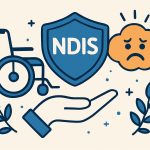In an age where information is at our fingertips and resources are abundant, the allure of DIY event planning can be tempting. After all, who wouldn’t want to save money and have complete control over their event? However, while the DIY approach may seem appealing, it often falls short of expectations. Understanding the pitfalls of this method can help you make informed decisions about your next event.
The Allure of DIY Event Planning
The idea of planning an event yourself can be exhilarating. You envision a unique gathering that reflects your personal style or brand identity. The thought of saving money by cutting out the middleman is also enticing. However, the reality of event planning is often more complex than it appears.
Many people underestimate the time, effort, and expertise required to pull off a successful event. From logistics to guest management, the intricacies can quickly become overwhelming. This is where the expertise of professionals can make a significant difference. Companies like Zentive, who are experts in delivering impactful brand experiences, can provide the necessary support to ensure your event not only meets but exceeds expectations.
Common Pitfalls of DIY Event Planning
1. Lack of Experience
One of the most significant drawbacks of DIY event planning is the lack of experience. While you may have a vision, executing that vision requires a deep understanding of various elements, including:
• Venue selection
• Catering options
• Audio-visual requirements
• Guest management
• Compliance with local regulations
Without prior experience, it’s easy to overlook critical details that can make or break an event. For instance, failing to secure the right permits or not having a contingency plan for bad weather can lead to disastrous outcomes.
2. Time Constraints
Planning an event is a time-consuming process. From the initial brainstorming sessions to the final touches on the day of the event, the hours can quickly add up. Many DIY planners underestimate the amount of time required, often leading to rushed decisions and overlooked details.
Consider the following:
• Research: Finding the right venue, vendors, and entertainment can take weeks, if not months.
• Coordination: Communicating with multiple suppliers and ensuring everyone is on the same page can be a logistical nightmare.
• Execution: On the day of the event, you’ll need to manage everything from setup to guest arrivals, which can be overwhelming without a dedicated team.
3. Budget Overruns
While the intention behind DIY planning is often to save money, the reality can be quite different. Many DIY planners find themselves overspending due to a lack of knowledge about industry standards and hidden costs.
For example, you might think you can save money by sourcing your own catering, only to discover that the costs of food, staff, and equipment rental add up quickly. Additionally, without established relationships with vendors, you may miss out on discounts or special packages that could have saved you money.
4. Stress and Burnout
The pressure of planning an event can lead to significant stress and burnout. The emotional and physical toll of juggling multiple responsibilities can detract from the enjoyment of the event itself.
When you’re knee-deep in logistics, it’s easy to lose sight of the purpose of the gathering. Instead of enjoying the celebration, you may find yourself worrying about whether everything is going according to plan. This stress can also affect your relationships with friends, family, or colleagues who may be involved in the planning process.
The Benefits of Professional Event Planning
Given the challenges associated with DIY event planning, it’s worth considering the benefits of hiring professionals. Here are a few key advantages:
1. Expertise and Experience
Professional event planners bring a wealth of knowledge and experience to the table. They understand the nuances of event planning and can navigate potential pitfalls with ease. Their expertise allows them to anticipate challenges and develop effective solutions, ensuring a smooth event from start to finish.
2. Time Savings
By outsourcing the planning process, you free up valuable time to focus on other priorities. Professional planners handle all the details, allowing you to concentrate on what matters most—whether that’s enjoying the event or managing your business.
3. Budget Management
While hiring a professional may seem like an added expense, it can actually save you money in the long run. Experienced planners know how to negotiate with vendors and can help you avoid costly mistakes. They can also provide insights into budget-friendly options that you may not have considered.
4. Stress Reduction
With a professional team managing the logistics, you can relax and enjoy the event. Knowing that experienced planners are handling everything allows you to focus on your guests and the overall experience, rather than worrying about the details.
Conclusion
While the DIY approach to event planning may seem appealing, it often falls short of expectations due to a lack of experience, time constraints, budget overruns, and stress. By recognising these pitfalls, you can make a more informed decision about how to approach your next event.
Engaging professionals who are experts in delivering impactful brand experiences can transform your vision into reality, ensuring a successful and memorable event. Whether you’re planning a corporate gathering, a wedding, or a community festival, the right support can make all the difference. So, before you dive into the DIY route, consider the benefits of professional event planning and how it can elevate your experience.















